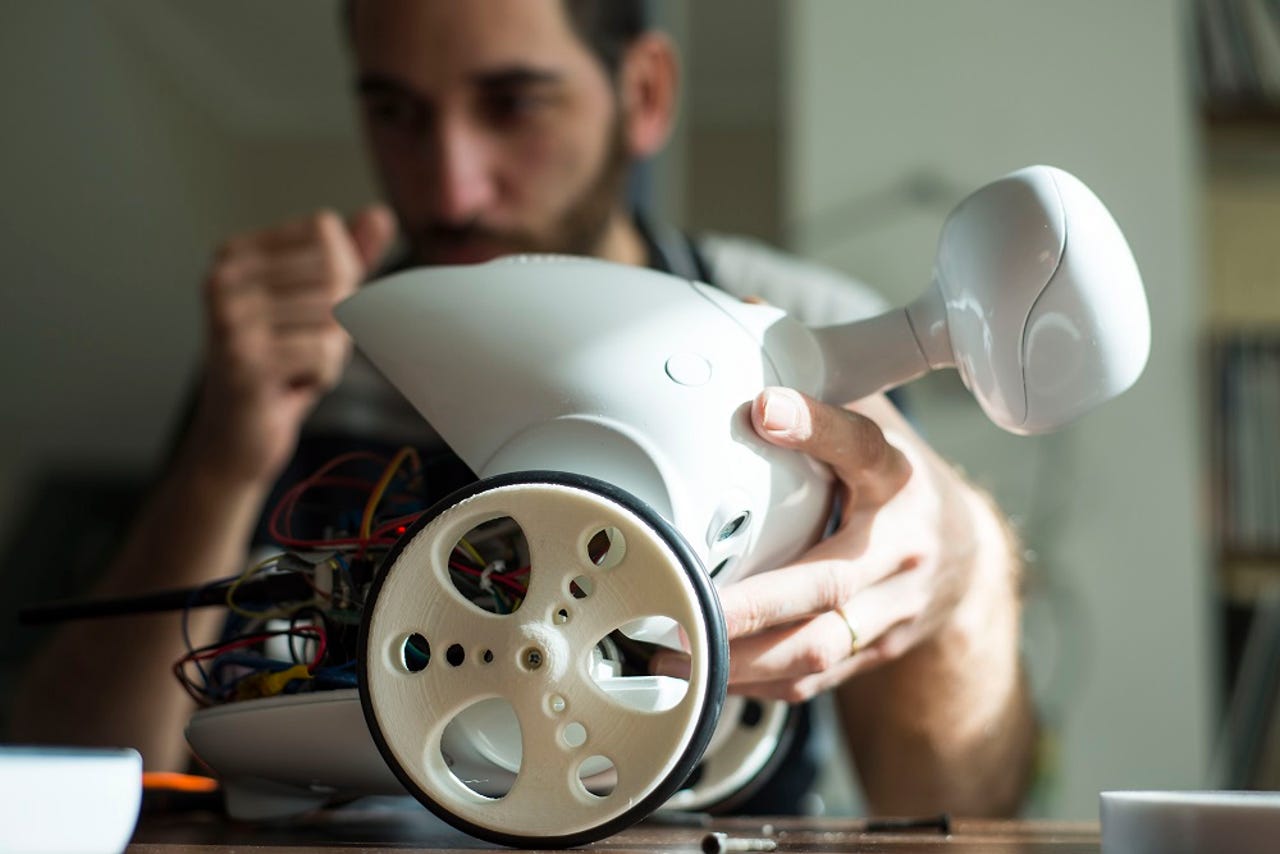Should robots be friends or tools? Open-API platforms point strongly in one direction


Robit
An Israeli startup called Robit professes strong beliefs about what a home robot should -- and shouldn't -- be. The company's first robot, eponymously called Robit, is less a friend for the family and more a tool for getting things done.
"There's a reason the only robot a person is likely to have in their home today is a cleaning robot," founder Shlomo Schwarz tells me during a recent call. "It gives added value to the person. You buy a cleaning robot because it cleans your house. You're not buying a friend."
My dog's love-hate relationship with robot vacs veers close to friendship at times, but I take his point. The tool/companion divide has created two factions in the world of robotics. On one side you have robot's like Aldebaran's Pepper and Romeo, emotionally intelligent humanoids meant to stir feelings of connection and acquaintance.
On the other side you have function-first devices like the Amazon Echo, which is more of a smart open platform that allows expandable integration with the connected home.
The difference is particularly apparent in the forms that robotic devices tend to take -- those that have personalities tend to be C-3PO-like, those that don't tend to look more like R2D2. When I asked some of the best roboticists in the world to weigh in on the companion/function divide, their responses highlighted some of the key social, psychological, and marketing challenges inherent in choosing one or the other approach. Check out their responses in the gallery below.
R2-D2 or C-3PO? Robotics designers weigh in on which approach makes the most sense
In part, Robit's stance stems from cost constraints. Billed as the world's most affordable home robot, with an anticipated retail price of $349, Robit is powered by a Raspberry Pi 2 and uses a preconfigured version of the Raspbian OS. The micro controller keeps costs way down but also puts a ceiling on what the robot can ultimately do. More advanced AI functionality and the ability to move through human environments by building rich 3D models is simply out of reach for an ARM controller.
But that may not be a drawback. Robit, which launched an Indiegogo campaign today to get its first generation of bots out the door, is part of a growing trend to keep robot systems open source and to treat hardware as a platform. Which explains the company's decision to run Linux and maintain an open API, encouraging makers and developers to hack away.
"Our thinking is that if we make a robot that has different applications and can move around the house, that will be useful," Schwarz tells me. "Instead of a social robot, we decided to make an open platform. It's very similar to Android or iPhone. That's the vision. You go to the app store, download a new app that some developer has created."
In other words, Robit is admitting that it doesn't really know how its device will be best utilized, and the company is fine with that. It's a promising model for robotics: If you build it, apps will come.
One of the early apps planned for Robit is for home security and patrol. There are also games for kids, such as hide and seek. One cool app currently in development will allow Robit to track objects, such as keys, around the house, recalling the last place it saw a designated item to help you find it."
"Emotional robots looks good on film," says Schwarz, "but in reality they're never as impressive as developers hope."